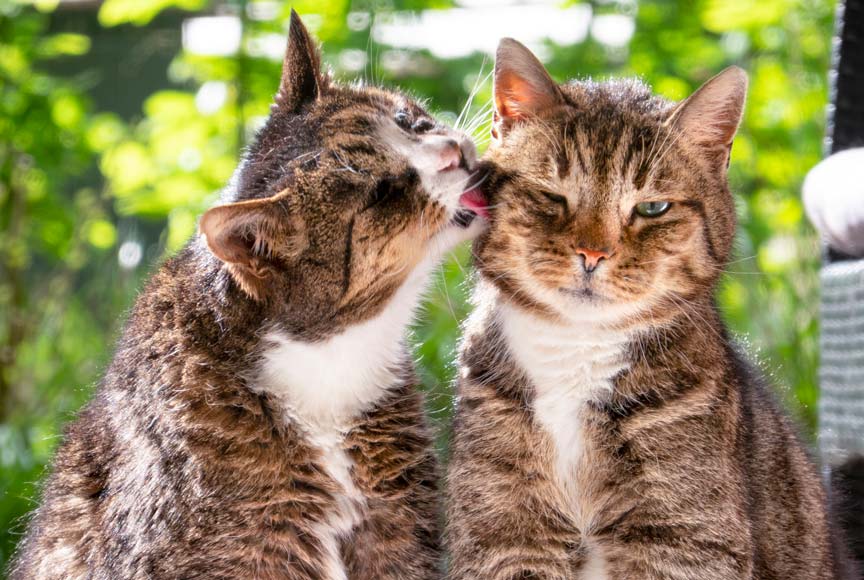A Day With an Un-Neutered Cat

You've probably heard that it's important to have your cat spayed or neutered. But do you really know what it's like to live with an un-neutered (intact) kitty? Here's a taste of some of what you can expect if you don't have your cat fixed.
Female Un-Spayed Cats
A female cat that isn't spayed goes into heat around six months of age. During the warm months, a cat can go into heat every two or three weeks, each one lasting up to two weeks.
When a female cat is in heat, they often yowl like crazy. They are incredibly loud, all day and all night. They also roll on the ground, stick their rear ends in the air, and demand near-constant attention.
Female cats in heat may urinate outside of the litter box. If you have two female cats in the same home, they may fight and injure each other.
Female cats in heat often try to escape and get outdoors, which isn't a very safe spot for them. They risk being hit by a car, attacked by wild animals or other territorial cats, or contracting a deadly feline virus, parasites, or another illness.
Every time a female cat goes into heat, she risks developing pyometra, which is a life-threatening infection in the uterus.
Male Un-Neutered Cats
If you live with a male cat that hasn't been fixed, here's what you should expect:
- Male cats are territorial, and they urinate outside of the litter box and scratch inappropriate items to mark territory. Once they begin this behavior, it's hard to correct, even by neutering.
- They try to escape the safety of the home in search of females.
- They are inclined to fight other male cats, putting them at risk of causing or receiving serious illnesses like FIV and FeLV, bite wound abscesses, and the loss of ear or tail tips.
- They can become aggressive toward humans and dogs as well as other cats.
Having your cat neutered or spayed as soon as your veterinarian recommends it can help you avoid many of the unwanted behaviors they develop during puberty.
You May Also Like These Articles:
FIV: Feline Immunodeficiency Virus
Worms in Cats: Feline Intestinal Parasites
Notice: Ask-a-Vet is an affiliated service for those who wish to speak with a veterinary professional about their pet's specific condition. Initially, a bot will ask questions to determine the general nature of your concern. Then, you will be transferred to a human. There is a charge for the service if you choose to connect to a veterinarian. Ask-a-Vet is not manned by the staff or owners of CatHealth.com, and the advice given should not delay or replace a visit to your veterinarian.



